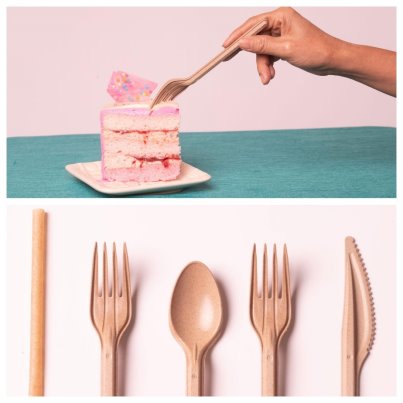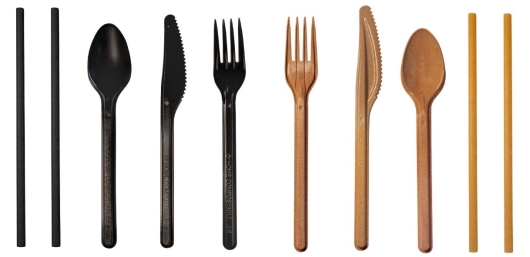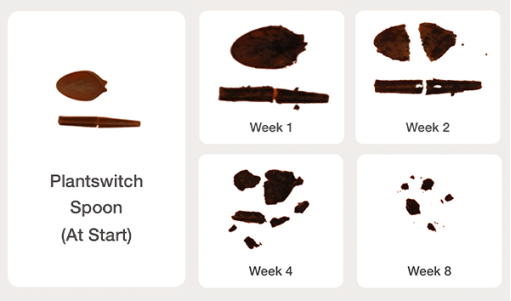PlantSwitch introduces the business, science of safer plastic products
PlantSwitch is turning plants into plastic products that are easily compostable, high-performance, safe, and affordable. Their ingenuity has landed PlantSwitch forks, spoons, knives, straws, plates, bowls, jars, and packaging on national retail shelves, including: Walmart, Costco, and Whole Foods among others.
While industries, government agencies, and health organizations argue over the environmental and health hazards of traditional petroleum-based plastic, one company has been converting big brands to their compostable plant plastic made from materials, like: rice husks, wheat straw, and other cellulose-rich byproducts.
The company is called PlantSwitch, and they have emerged as a leader in alternative plastics for several reasons. They’ve developed the only alternative plastic that drops into existing plastic molding machinery, making it the most affordable alternative plastic to hit the market. And unlike its rivals, PlantSwitch plastic breaks down in a matter of weeks in standard home composting bins.
PlantSwitch’s plant plastic is affordable, easily compostable and leaves behind zero harmful microplastics. It also looks, feels, and performs identically to the petroleum-based plastic we’ve all come to rely on for, well, just about everything.
The company has landed more than $20M in funding and acquired a 52,000sf factory in Sanford, North Carolina, due to its close proximity to a steady downstream of agricultural waste that the company uses to convert into their proprietary plastic material.
“Last year, PlantSwitch began production for a number of large customers, including Taylor Farms, a $7 billion family-owned producer of salads and fresh foods based in Salinas, California. Through partnering with PlantSwitch, [Taylor Farms] aims to replace 100 million forks in its chopped salad bowls sold in Walmart and Costco stores.”
Unlike PlantSwitch plastic, which breaks down easily in regular home composting bins, “Most bioplastics and compostable packaging are not truly biodegradable and will not break down in a backyard bin. They must be composted in high-heat industrial compost facilities, where materials are exposed to 150-degree temperatures. Very few cities have these facilities, so most [other] bioplastics end up in landfills.” (Inc.com)


PlantSwitch also provided 500K of their plant plastic plates, bowls, straws and utensils to the 2025 Pebble Beach Food and Wine Event, which draws the biggest names of the culinary world. The donation saved the annual event from producing more than 8,000 lbs. of toxic plastic waste.
Take a look at this recent PBS News Special on PlantSwitch to get a behind-the-scenes look at their manufacturing facility and how they are mass producing plastic using the power of plants.
PlantSwitch plastic is currently being molded into single-use cutlery, plates, bowls, takeout food packaging and containers, cosmetics packaging, coffee pods, straws and lids.


Awesome…
Good…